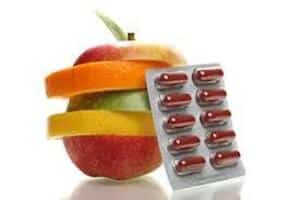What’s a Multivitamin, Advantages and Types?
The human body needs minerals and vitamins for correct functioning. It comes from a balanced diet every day. But not everyone consumes the right food in their diet, so a deficit of vitamins and minerals occurs. Multivitamins are a combination of various vitamins that usually comes from different food sources and makes up for the deficit. What is a multivitamin?
Advantages to Get from Multivitamins
At the point when there is a deficiency in the singular nutrients, there is a requirement for multivitamins in the body to overcome any barrier in supplements. It meets the supplement holes and offers the accompanying advantage.
Increments energy level
Nutrients are crucial for assist you with performing day to day assignments effectively, without prompting weariness and different issues.
Better mind-set
Assuming you have sufficient minerals and nutrients, it further develops mind capabilities which elevates one’s temperament in the most effective way conceivable.
Decrease nervousness and stress
Vitamin B is a decent energy source that keeps the sensory system working appropriately. The body likewise creates pressure chemicals, so day to day multivitamins are fundamental.
Keep up with muscle strength
Multivitamins can help avoid harming revolutionaries in the human body, prompting age-related inconveniences.
Foods and Symptoms
At the point when you take multivitamins in an immense portion, you might encounter a few secondary effects like issues of stomach upset, looseness of the bowels, clogging, and others. Be that as it may, body defeats the issues once it becomes acclimated to the medicine. On the off chance that your primary care physician endorses it, he probably thought to be its gamble factors more than its advantages to your body. Some may likewise confront unfavorably susceptible responses from the utilization of multivitamins.
Here is a list of foods rich in minerals and vitamins that should be included in the daily diet.
- Vitamin A: includes carrots, potatoes, spinach, berries, kale, apricots, papaya, butter, eggs, raw milk, cheeses, and meat & liver.
- Vitamin B: Green leafy vegetables, pork, ham, whole-grain cereals, wheat germ, lentils, nuts, green pea, etc.
- Vitamin C: Boosts immunity, and you should have foods like orange, strawberry, lemon, papaya, bell peppers, tomatoes, and broccoli.
- Vitamin D: Strengthens bones and teeth, boots immune system, and food sources are orange juice, mushroom, fatty fish, and soy milk.
- Vitamin E: A source of antioxidants, and foods include spinach, plant oils, mustard green, turnip greens, and others.
- Vitamin F: Helps heal wounds and boosts metabolism, and one should take more nuts, oil, and fish rich in Vitamin F.
- Vitamin K: You should include broccoli and cabbage in your diet to have this vitamin.
Types of Multivitamins
Multivitamins can be of three types – capsules, soft gels, and liquid. Besides that, the types of multivitamins can vary according to the age and requirements of the people.
The Bottom Line
In this manner, your eating regimen ought to incorporate iron, magnesium, folic corrosive, zinc, and copper in a reasonable sum. The right food decision in a regular eating regimen will supply the necessary minerals and nutrients to keep a body working without a hitch. Rather than going for multivitamins, it is consistently reasonable to depend on a solid eating regimen with food that is a decent wellspring of all expected nutrients in the human body. In this way, select food in ordinary eating regimen reasonably that advances a solid way of life.







